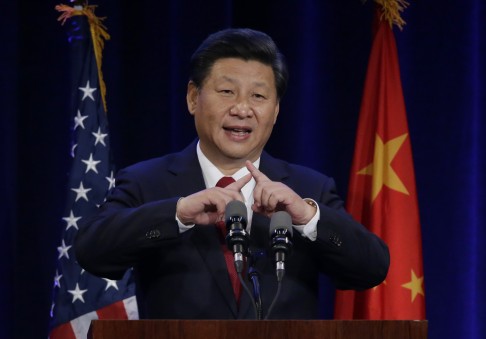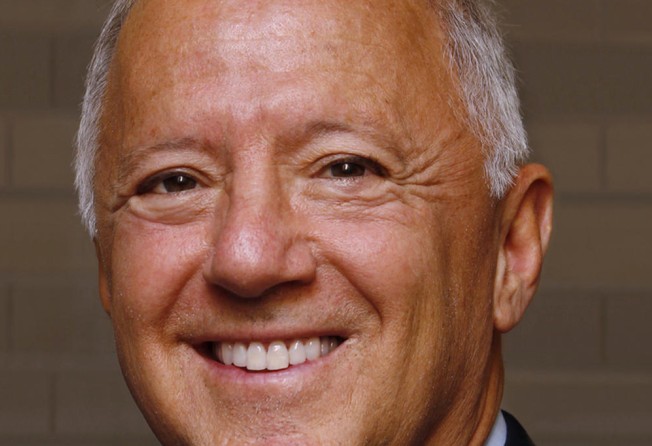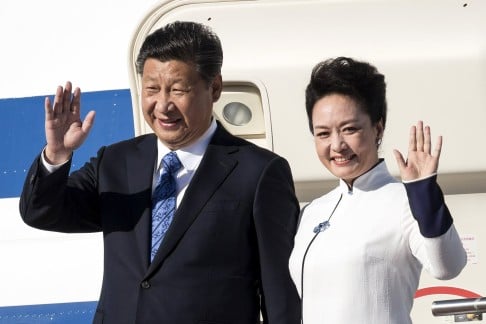
Q&A: President Xi Jinping’s US state visit was ‘enormous success – or as we’d say, a home run’
Stephen Orlins, head of National Committee on United States-China Relations, who co-hosted October dinner for Xi in Seattle before his US state visit in Washington in September

Stephen Orlins, 65, first worked on US-Sino ties in 1977.
The Harvard law graduate and former diplomat and Hong Kong banker with Lehman Brothers Asia heads the non-profit National Committee on United States-China Relations.
He co-hosted last month's dinner for President Xi Jinpingin Seattle before his US state visit in Washington.
He spoke to KEIRA LU HUANG.
What was it like when you first visited China?
I arrived in Beijing in 1979. It took about 25 hours to fly from New York, to Tokyo, Shanghai and finally Beijing. Driving with my wife from the old Beijing airport to the Beijing Hotel, where I lived for the next couple of years, I did not see another car on the road. I was there to teach contract law to Beijing municipal officials, and also represent foreign companies investing in China now that it had opened up.
What got you interested in China?
I was fortunate to join the US State Department in 1976 after graduation. As I'd studied Chinese [while at Harvard], after a year I joined a team preparing to set up diplomatic relations with China. I was 28 when they were established.
What did you think about meeting Xi in Seattle?
I introduced President Xi to many American businessmen [at the dinner]. When the line of people waiting to meet him was finished, and everyone had shaken his hand, I said, 'There is one person that hasn't taken a photo with you, and that is me', and he smiled. Then we shook hands and smiled at the camera. He seemed very energised; he was very warm.
It was interesting to hear him describe the literature he has read - including Ernest Hemingway's The Old Man and the Sea ... it's humanising: it's not policy, it just makes him someone that American people can understand, someone who cares about the world. It was an enormous success … as we would say, a home run
His speech at the dinner was one of the most unusual I've ever heard a Chinese leader give. The audience gave him a deserved standing ovation.
He was telling the American people that, when you look at China, you need to understand that in just one generation we've come from where we were to where we are today.
Conveying this kind of an approach - talking about their roots and how that has formed their thinking - is what a US politician would do: it allows the American government and the people to understand what forms his judgments. They may not agree with it all, but will at least understand. I haven't heard a leader do it outside of China, I thought that was extremely effective.
It was also interesting to hear him describe the literature he has read - including Ernest Hemingway's The Old Man and the Sea - and of going to [Havana's El Floridita] bar where Hemingway went, and having the [rum] mojito [cocktails] Hemingway drank. Again, it's humanising: it's not policy, it just makes him someone that American people can understand, someone who cares about the world, reads, and is interested in foreign cultures. It was an enormous success … as we would say, a home run.
How has Xi's image changed since that visit?
The change in Xi's image is real. If you were watching, you could not fail to be impressed by [him]: he is a global leader. The American people don't really know who Xi is. They just see this leader of almost 1.4 billion of people. On my discussions with people in China and the Chinese government, leading up to the visit, I thought it was important he and the first lady, Peng Liyuan , should convey who they are - talk about their backgrounds, what they've done, their vision for the future.
How would you rate Xi's US visit?
On a scale from one to 10, I would give Xi's US visit an 11. I think it was remarkably successful
On a scale from one to 10, I would give it an 11. I think it was remarkably successful. I compliment both the Chinese government and the US government that we saw real substantive progress on a broad range of issues. They were able to start down the road of decreasing the problem [over cybersecurity] - potentially solving it. That was very important as it was probably the biggest problem in the relationship. The climate change agreements are historic. As for Xi's commitment not to "militarise" the South China Sea islands, I am interpreting that to mean there won't be military aircraft or the stationing of missiles there.
I also think Xi's speech at the UN, and China's commitment to funding various activities [including US$1 billion to a 10-year joint China-UN peace and development fund] is historic in many ways and makes China the responsible stakeholder that the world wants it to be.
Are you worried that verbal agreements will be implemented?
Implementation of these agreements is going to define whether this was tremendously successful or only somewhat successful. Having said that, the agreements in principle across this broad range of issues far exceeded what analysts expected before the visit. [But] I wish there had been more progress on a bilateral investment treaty, which could be another pillar of the US-Sino relationship.
Are you worried about China's economic slowdown?
The old economy - steel, cement, construction, construction equipment, real estate and heavy industry - isn't growing: it's probably contracting. And there is enormous excess capacity in those sectors. The new economy - travel, leisure, the internet, telecommunications - is growing incredibly rapidly, at more than 10 per cent. The good news is the service sector, which is more a part of the new economy, where each per cent of growth in China's gross domestic product creates more jobs than the old economy. The assurance I want - which we got - was for increased reform, increased use of market forces, increased transparency. That's what's going make China successful - not increased stimulus.
How do you see post-Obama US-Sino relations?
Everyone of the agreements during Xi's visit is in America's interest. The questions a new president faces will be, 'Is this good for the American people ... for jobs? … for the economy? … for American strategic interest?' If the answer is yes, yes, yes and yes, why wouldn't they do it?
Americans look at the Chinese political system and it is not democratic - it is authoritarian. And they don't like that. The Chinese see America's negative views as interference.
Campaign rhetoric in the US, with respect to China has rarely become policy when a president is elected. What we are hearing now [from US presidential hopefuls] is not something that will be implemented by the person wins the presidency.
